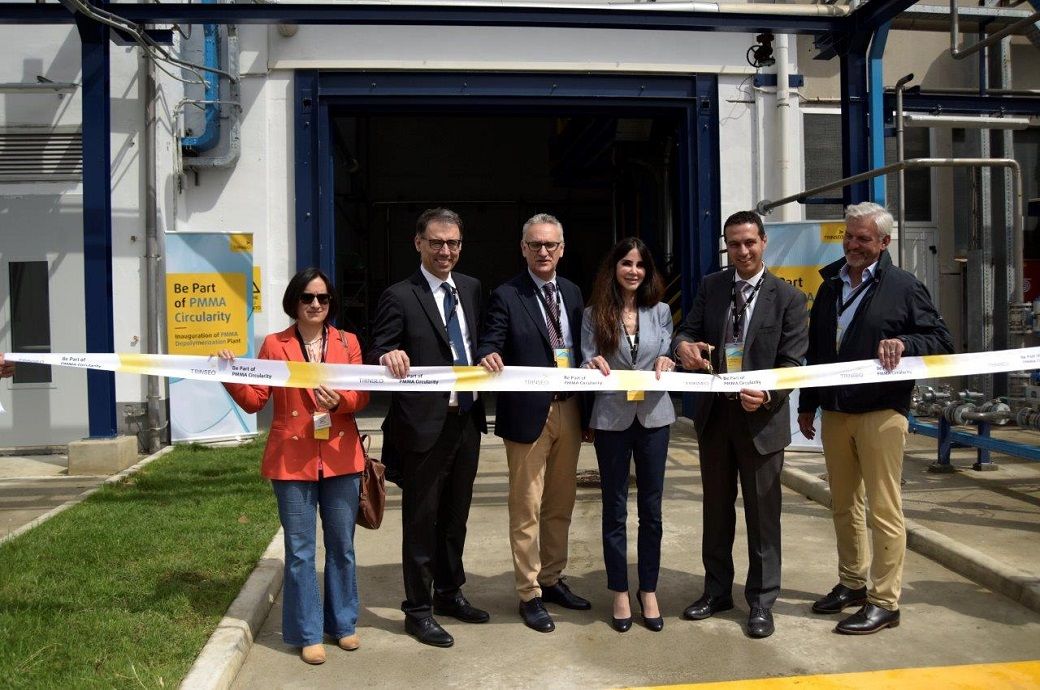
Community event celebrating opening of new PMMA Depolymerisation facility. (L-R) Valentina Giro, Vinicio Peluffo, Andrea Origgi, Francesca Reverberi, Andrea Orlandi, Frank Bozich. Pic: Business Wire
“We are thrilled about the opening of our depolymerization facility, which will help advance our goal to support a circular economy,” said Francesca Reverberi, senior vice president of Engineered Materials and Chief Sustainability Officer at Trinseo. “Our company remains committed to our sustainability goals, including investing in new recycling technologies that can support our customers in reaching their sustainability goals as well.”
Trinseo has inaugurated a PMMA depolymerization facility in Rho, Italy, marking a significant step towards sustainability in acrylic solutions.
This chemical recycling plant converts PMMA back into its constituent monomer, methyl methacrylate (MMA.
Supported by EU-funded MMAtwo Consortium research, the facility produces high-purity recycled MMA (rMMA).
Depolymerization is a chemical recycling process that returns acrylic solutions to the constituent monomer, methyl methacrylate (MMA). Complementary to other recycling technologies, depolymerization helps close the loop for acrylic recycling with several advantages over traditional processes. By utilizing this technology, acrylic solutions can be recycled—including PMMA sheets, which previously could not be mechanically recycled. Additionally, returning the material to its monomer form allows additives and contaminants to be removed from pre- and post-consumer acrylic products. This enables more PMMA to be recycled.
Trinseo’s PMMA depolymerization facility delivers a next-generation technology, utilizing an advanced continuous process to produce high-purity regenerated MMA from pre- and post-consumer acrylic solutions. Trinseo’s depolymerization technology leverages findings from the MMAtwo Consortium, a collaborative initiative funded by the European Union’s Horizon 2020 research and innovation program, to develop a new value chain for pre- and post-consumer PMMA and a versatile recycling process for converting this waste into high-quality regenerated monomer with carbon footprint reduction versus virgin MMA.
“Today is a critical milestone in our sustainability journey,” said Han Hendriks, chief technology officer at Trinseo. “Depolymerization expands our recycled feedstock capabilities, which in turn, will help us innovate new solutions. With this new capability, we can build a more robust recycled acrylics portfolio to better meet the evolving needs of our customers.”
The recycled MMA (rMMA) generated by Trinseo’s depolymerization facility is utilized in the Company’s ALTUGLAS and PLEXIGLAS R-Life product portfolios. Through this new facility, Trinseo can produce rMMA that is comparable to virgin raw materials. This enables use in high-demand applications, such as vehicle taillights or caravan windows that require high optical quality.
Note: The content of this press release has not been edited by Fibre2Fashion staff.
Fibre2Fashion News Desk (HU)

